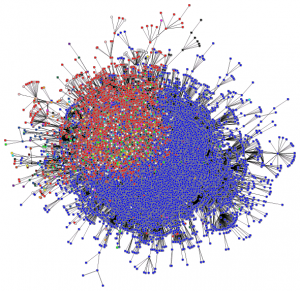William Gibson coined the term “cyberspace”, for his 1982 short story Burning Chrome to create a “a narrative engine, and a territory in which the narrative could take place”. Twenty years on, cyberspace is the world’s narrative engine: and an uncharted territory to which the world is still coming to terms.
Political, industrial, and civic leaders are gathering at the Foreign Office’s London Conference on Cyberspace next week to think through the implications, opportunities and contradictions of this emerging world.
The conference will explore key themes – prosperity; social good; freedom of access and expression; cyber crime and international security – with the aim of deepening mutual understanding and beginning to outline a political, social and economic strategy to secure the benefits of cyberspace while addressing the concomitant threats to personal and national security.
The Foreign Office would like the dialogue at the event and online to be as broad as possible – and, in support of this process, Debategraph will be mapping and curating the dialogue as it unfolds live and online.
To start exploring the map – which we have seeded with the initial framework of the conference – click on the small bubbles to move deeper into the debate and on the larger bubbles to move back up.
You can gain an insight into the range and scope of the debate by watching the map evolve here, but you are welcome to add your voice to the debate online by adding new ideas and comments to the map and by rating the ideas, or by suggesting new ideas and questions via Twitter using the #LondonCyber hashtag and/or the Foreign Secretary’s Facebook channel (both of which we will be monitoring as well).
As discussed before, the whole structure of the map is like a wiki – every aspect is provisional, and open to further refinement – and everyone can add new issues, positions, arguments and evidence to the map.
The aim is to weave together all of the arguments into a rich, transparent, non-linear structure that anyone can explore and understand quickly.
As with the other maps in the The Independent series you can keep up to date with developments via @TheIndyDebate on Twitter, and you are welcome to embed the map (like a YouTube video) on your own site or blog using the code shown below:
*Cross-posted at: The Independent

